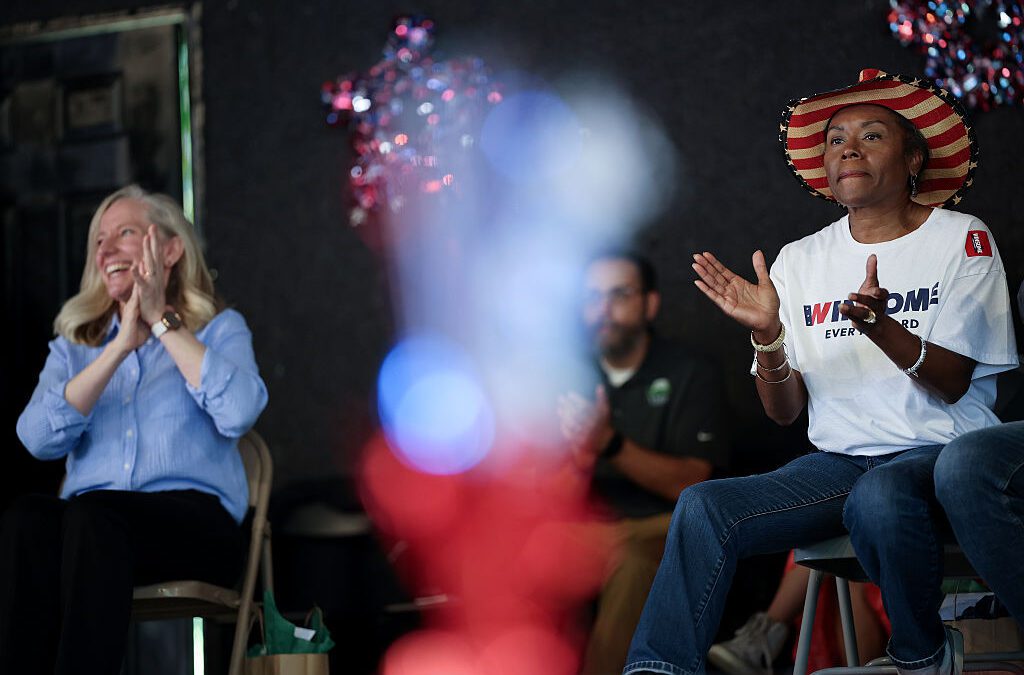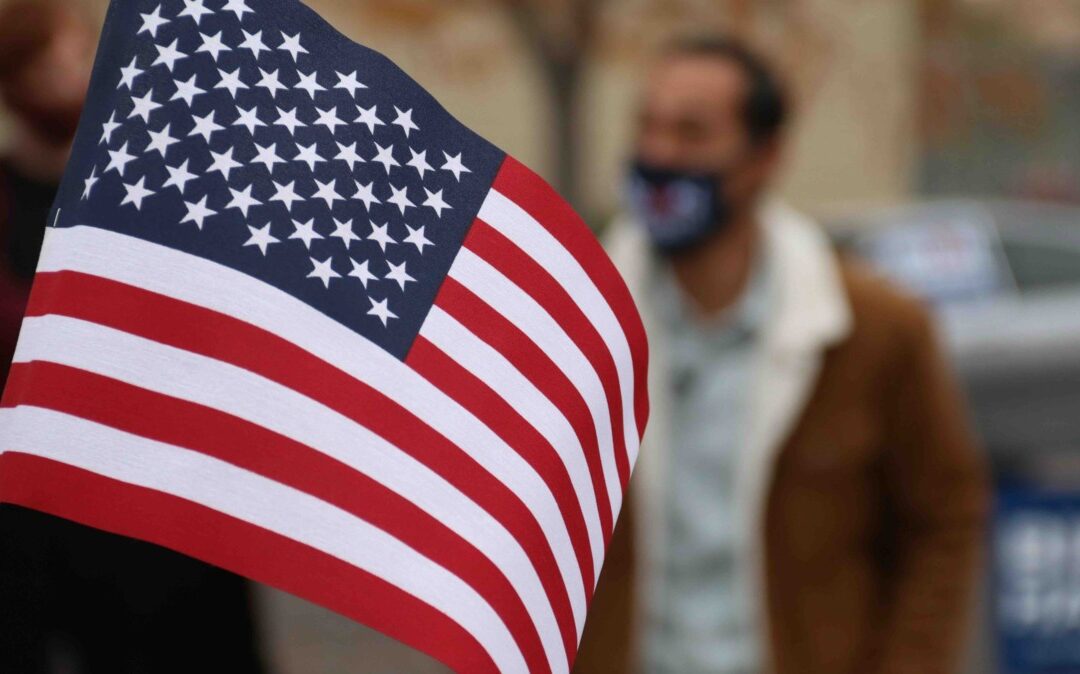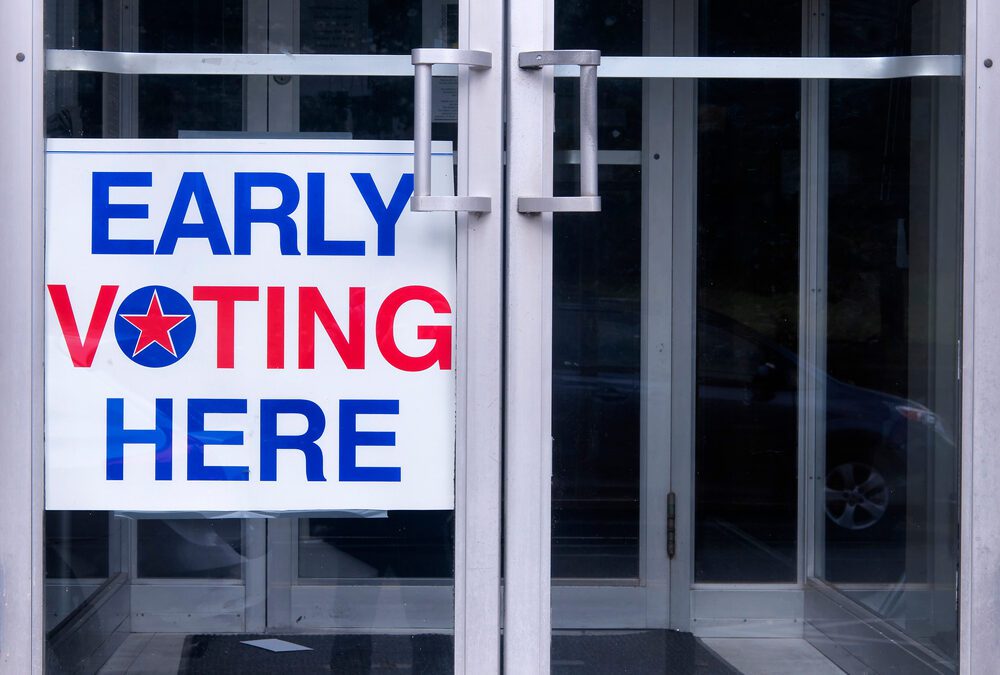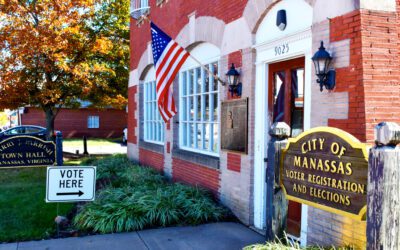
Colorful election vote, hand holding ballot paper for election vote concept at colorful background. (I'm friday/Shutterstock)
Wondering what to expect on your Virginia ballot? We break down the various offices you’ll be voting for this year.
We have officially entered election season in Virginia, and as one of just two states with a gubernatorial race this year, all eyes are on the Old Dominion State.
For those new to the political realm, gubernatorial refers to the governor, and this year’s race promises to be a close one. But that’s not all that’s on the ballot in Virginia this year.
Statewide offices up for election include governor, lieutenant governor, and attorney general. Then there are the races for all 100 seats in Virginia’s House of Delegates, more than 80 of which are fielding two candidates, meaning most Virginians will have decisions to make for their respective districts.
At a time when confidence in democracy is plummeting, it’s more important than ever to hit your local polling place and vote for the candidates you think can help strengthen the pillars of our government.
In this quick guide below, we’ve thrown together some descriptions to help you know what to look for on this year’s ballot and what the folks who get elected to each office will be doing in their new or reelected roles.
Governor
As head of the Commonwealth of Virginia’s government, the governor is commander-in-chief of the Virginia National Guard and Virginia Defense Force as well as director of emergency management, among other roles.
“The Commonwealth is heralded as a national bellwether, like clockwork every four years,” writes the USA Today’s Savannah Kuchar. “Held in the odd year after the presidential election since 1869, Virginia’s gubernatorial race is a cyclical scorecard for voters’ moods and the issues at the forefront of the national consciousness.”
RELATED: Stark contrast between Spanberger, Earle-Sears when it comes to Virginians’ reproductive freedom
With current Republican Gov. Glenn Youngkin at the end of his term limit, this year’s race is between former US Rep. Abigail Spanberger, a Democrat, and current Virginia Lt. Gov. Winsome Earle-Sears, a Republican. Regardless of who wins, Virginia will have its first woman governor come 2026.
Check out NPR’s breakdown of the race from June.
Lieutenant Governor
According to the Constitution of Virginia, the lieutenant governor’s official duties include serving as president of the Senate and presiding over the Senate, while also being first in the line of succession to governor.
As the official website of the Commonwealth of Virginia notes, “the Code of Virginia provides that the lieutenant governor shall serve as a member of several other state boards, commissions and councils, including the Board of Trustees of the Jamestown-Yorktown Foundation and the Center for Rural Virginia; the Board of Directors of the Virginia Economic Development Partnership and the Virginia Tourism Authority; the Virginia Military Advisory Council, the Commonwealth Preparedness Council and the Council on Virginia’s Future.”
As is the case in 16 other states, the lieutenant governor of Virginia is elected separately from the governor, which means that the two roles could be filled by representatives of different parties.
This year’s candidates are Democrat Ghazala F. Hashmi, the first Muslim and first Indian-American to be nominated to appear on the ballot for any statewide office in Virginia, and Republican John J. Reid II, the first openly gay man to receive a major party’s endorsement for statewide office in Virginia. Read more about the race in the Associated Press.
Attorney General
Think of Virginia’s attorney general as the commonwealth’s attorney, generally (see what I did there). He or she provides legal services to all of Virginia’s agencies, boards, commissions, colleges, and universities.
The AG “defends the interests of Virginians and Virginia government and also works with law enforcement throughout the Commonwealth to prepare for emerging public safety threats and to promote successful, secure communities,” according to the official website of the Commonwealth of Virginia.
This year’s race sees Democrat Jay C. Jones, who eked out a win with 51% of the Democratic primary vote, facing off against incumbent Republican Jason S. Miyares. Read more about the race from the Virginia Mercury here.
Virginia House of Delegates
As the oldest continuous English-speaking representative legislative assembly in the Western Hemisphere, the Virginia House of Delegates consists of 100 members who each represent a district of approximately 86,000 Virginians.
The Virginia Department of Elections has a list of candidates for each of the commonwealth’s 100 districts. If you’re unsure of which district you live in, check out the Virginia General Assembly’s Who’s My Legislator tool so you can prepare for your respective race by getting to know the candidates that’ll appear on your ballot.
Democrats, who currently hold a slim majority in the House, are running candidates in each and every district while Republicans are fielding candidates in just over 80 races, hoping to focus more heavily on districts where they believe they can flip a seat. Read more about these opposing strategies in this piece from Virginia Mercury.
Local races
Some folks say your local offices are the ones that affect your life the most—from sheriff’s offices to school boards—so it’s always helpful to familiarize yourself with what’s going to be on your ballot at the local level.
With this local candidate list from the Virginia Department of Elections, you can find your county and see who’s running in what races, with candidate websites included so you can find out who aligns with your values in each race.
Related: Youngkin invites AI into the Virginia government—tech experts say it’s a bad idea

Virginia’s next governor could decide the future of our democracy
Education, jobs, health care, and business—Virginia’s governor will set the direction for a decade. Governors aren’t just state managers—they can...

Spanberger vs. Earle-Sears: How Virginia’s governor hopefuls compare on abortion, climate, and schools
This November, either Abigail Spanberger or Winsome Earle-Sears will be the first female governor in Virginia’s history. Here’s where each woman...

Spanberger supports reproductive rights; Earle-Sears has history of opposing them
Democratic nominee for governor Abigail Spanberger criticized the overturning of Roe v. Wade. Republican nominee, Lt. Gov. Winsome Earle-Sears,...

Where Virginia’s gubernatorial nominees stand on the economy
Democratic nominee Abigail Spanberger has a lot to say about economic policy. Her opponent? Not so much. Election Day is just under two months away...

A step-by-step guide on registering to vote in Virginia in 2025
Learn how to check your voter registration status and register to vote with this simple list. So you’re ready to vote in Virginia… or are you?...

Early in-person voting in Virginia: Where, when, and how to vote
With so much at stake in this year’s elections—including deciding who represents you both in the governor’s office and in the Virginia House—voting...





